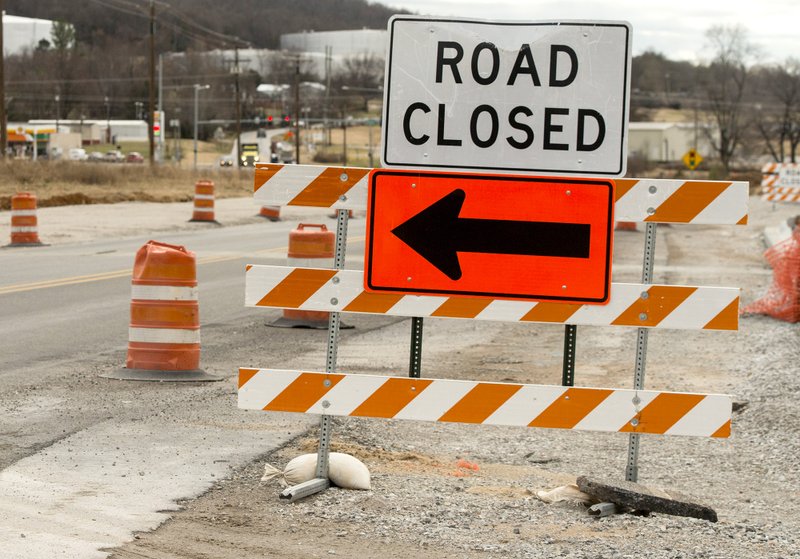An organization backed by the road construction industry released a study Friday cataloging the shortcomings of Arkansas roads that would need a "substantial boost in local, state or federal transportation" funds to pay for the projects to improve them and expand their capacity.
The report provided what its lead author, Rocky Moretti, said was a "snapshot of conditions," including congestion, deteriorating quality and lack of safety that he says costs Arkansas drivers $3.2 billion annually, and comes about seven weeks before state voters will consider replacing an expiring temporary 0.5% statewide sales tax dedicated for road construction with a permanent one of the same amount after the former expires in 2023.
Before the coronavirus pandemic put the brakes on traffic, travel on the state's roads had increased 26% since 2000, according to the report titled, Arkansas Transportation by the Numbers: Meeting the State's Need for Safe, Smooth and Efficient Mobility."
The report was published by TRIP, a Washington, D.C.-based organization that styles itself as a national transportation research nonprofit, relying on publicly available data from the Federal Highway Administration, the National Highway and Traffic Administration, the American Association of State Highway and Transportation Officials and other sources.
The organization was founded in 1971 and since has issued 600 similar reports on a range of local, state and national transportation subjects, according to Moretti, TRIP's policy and research director.
He said TRIP is backed by manufacturing, insurance, construction and labor organizations interested in the group's advocacy for "transportation that is well-maintained, safe and reliable."
Joe Quinn, the executive director of the Arkansas Good Roads Foundation who participated in a news conference Wednesday morning to discuss the study, said the Associated General Contractors, the main trade association for the U.S. construction industry, paid for the TRIP study.
The Associated General Contractors' Arkansas affiliate also is backing a proposed amendment to the state constitution that would replace the expiring 0.5% sales tax, which voters approved in 2012. The proposal is on the November general election ballot as Issue 1 and is backed by Gov. Asa Hutchinson.
State Department of Finance and Administration officials have projected that it would raise about $205 million a year for highways and about $43 million a year apiece for cities and counties for their streets and roads.
Americans for Prosperity's Arkansas chapter has formed a ballot question committee to campaign against Issue 1. No Permanent Tax. No on Issue 1 announced Tuesday that the Central Arkansas Group of the Arkansas Sierra Club and Little Rock's Downtown Neighborhood Association had endorsed its campaign.
More than half of state highways are in poor or mediocre condition, according to the TRIP report.
The state's fatality rate of 1.41 deaths per 100 million miles traveled is "significantly higher" than the national average, which is 1.13, the study said. A lack of safety improvements, such as modern intersections or rumble strips, is a factor in a third of all fatal crashes, according to Moretti.
And traffic is returning to pre-pandemic levels, which is bringing congestion to the "forefront," Moretti said.
Even if local motorists haven't returned to their daily commutes, freight traffic is on the upswing. About $226 billion in goods is shipped on Arkansas highways, according to Moretti.
As consumers turn to the Internet more and more to shop, he said federal data suggests that will only increase truck traffic -- by 90% over the next 25 years.
"An increasing volume and concentration of large vehicles moving across the state -- that's good for the economy but it's absolutely critical you have safe infrastructure to carry those larger vehicles," Moretti said. "It's also very important you have the capacity in place."
Neither TRIP nor the Arkansas Good Roads Foundation explicitly connected the report with supporting Issue 1.
"Our role is clearly education," Quinn said after the meeting. "Good Roads doesn't endorse. The study is evidence of a need for us to take the right steps and position ourselves for the future. I never urge anyone to vote a specific way. We just try to put information out there."
A copy of the report is available on the TRIP website at https://tripnet.org/.
